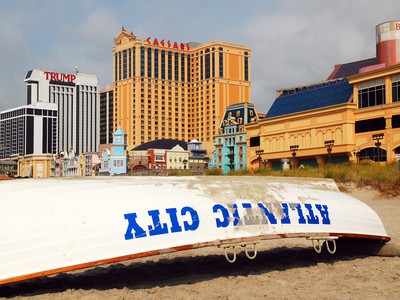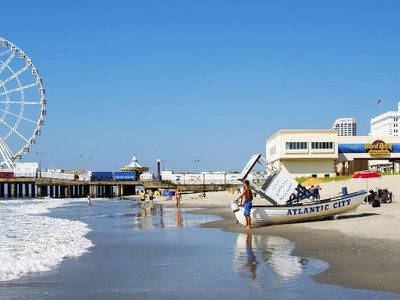New Jersey Gov. Phil Murphy signed a bill that provides tax relief for the New Jersey casino industry, but the move is opposed in many quarters and could ultimately be challenged in court.
Officials from Atlantic County — the county that contains the gambling mecca of Atlantic City — had pushed back on proposed changes to a tax agreement that was initially negotiated in 2016 and revised through a consent order, during Murphy’s administration, in 2018.
As reported earlier in the month on NJ Gaming Review, bill A5587 was designed to modify the payment in lieu of taxes (PILOT) law by removing online casino and sports betting revenue from the calculation of taxes casinos must pay to the state.
The casinos were originally on the hook for more than $150 million, but estimates show the revised PILOT law could reduce the total bill by as much as $55 million.
Atlantic County Executive Dennis Levinson sent a letter to Gov. Murphy on December 2 outlining his concerns, notably that the new modifications will see the county lose $5.4 million in annual tax revenue.
Lawsuit Threatened
While the casinos of Atlantic City would be major beneficiaries of the reduced taxes, Levinson noted that other communities in the county would also suffer.
“We all want Atlantic City to be successful but not at the expense of all others,” Levinson wrote, noting that taxpayers and businesses in 22 other towns lose tax revenue, hampering efforts to improve infrastructure and provide services to the public.
Levinson noted that casinos reported record revenue in 2021, with $310 million in operating profit during Q3 of 2021, an increase of more than $150 million from the same period in 2020. He sees modification of the original PILOT agreement as a direct threat to the revenue of local governments like Atlantic County.
Although Levinson had urged Murphy to veto bill A5587, he also made clear that legal options remain on the table if the bill wasn’t vetoed. He also conceded that a court fight over the changes wouldn’t be easy.
“Returning to court to enforce the consent order and/or revive the challenge to the constitutionality of the original PILOT bill would be costly and time-consuming. I would prefer not to have to take that course of action again but am prepared to do whatever is necessary to protect the best interests of all Atlantic County taxpayers.”
Atlantic County officials go back to the original 2016 PILOT agreement and note that its purpose at the time was to give the casino industry some consistency for revenue calculations. The county sees the new modifications as a violation of the initial agreement, and a case of casinos simply trying to renege on the agreements they negotiated years ago.
“These bills, as currently written, clearly benefit the casinos at the expense of our taxpayers,” Levinson wrote. “We’re not asking for more, like the casinos and Atlantic City; we’re only asking for what was already promised us in a court settlement.
“A promise made should be a promise kept.”
While it remains to be seen how this will ultimately play out, the New Jersey casino landscape looks to be turbulent over the next few months as both sides try to reach a compromise.






